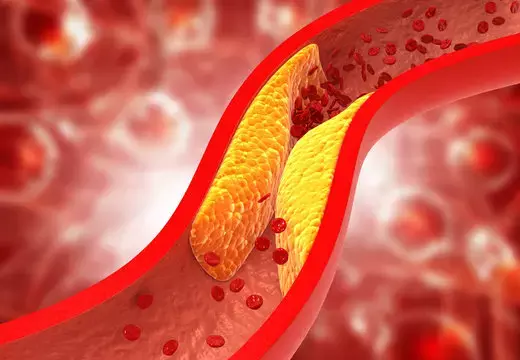- Home
- Medical news & Guidelines
- Anesthesiology
- Cardiology and CTVS
- Critical Care
- Dentistry
- Dermatology
- Diabetes and Endocrinology
- ENT
- Gastroenterology
- Medicine
- Nephrology
- Neurology
- Obstretics-Gynaecology
- Oncology
- Ophthalmology
- Orthopaedics
- Pediatrics-Neonatology
- Psychiatry
- Pulmonology
- Radiology
- Surgery
- Urology
- Laboratory Medicine
- Diet
- Nursing
- Paramedical
- Physiotherapy
- Health news
- Fact Check
- Bone Health Fact Check
- Brain Health Fact Check
- Cancer Related Fact Check
- Child Care Fact Check
- Dental and oral health fact check
- Diabetes and metabolic health fact check
- Diet and Nutrition Fact Check
- Eye and ENT Care Fact Check
- Fitness fact check
- Gut health fact check
- Heart health fact check
- Kidney health fact check
- Medical education fact check
- Men's health fact check
- Respiratory fact check
- Skin and hair care fact check
- Vaccine and Immunization fact check
- Women's health fact check
- AYUSH
- State News
- Andaman and Nicobar Islands
- Andhra Pradesh
- Arunachal Pradesh
- Assam
- Bihar
- Chandigarh
- Chattisgarh
- Dadra and Nagar Haveli
- Daman and Diu
- Delhi
- Goa
- Gujarat
- Haryana
- Himachal Pradesh
- Jammu & Kashmir
- Jharkhand
- Karnataka
- Kerala
- Ladakh
- Lakshadweep
- Madhya Pradesh
- Maharashtra
- Manipur
- Meghalaya
- Mizoram
- Nagaland
- Odisha
- Puducherry
- Punjab
- Rajasthan
- Sikkim
- Tamil Nadu
- Telangana
- Tripura
- Uttar Pradesh
- Uttrakhand
- West Bengal
- Medical Education
- Industry
Calprotectin Shows Promise as Independent Biomarker for ASCVD: JAMA

According to a new study published in JAMA ,calprotectin may serve as a mechanistically informed biomarker for atherosclerotic cardiovascular disease (ASCVD), independent of established risk factors and biomarkers. However its clinical utility requires further investigation. This study was conducted by Yu Zuo and fellow researchers.
Calprotectin, a marker of neutrophil activation, has been recognized to be an important player in inflammation, which is at the core of atherosclerotic cardiovascular disease (ASCVD) pathogenesis. Its understanding as a potential predictor of ASCVD may lead to enhanced early identification of individuals at high risk.
The research comprised 2,412 Dallas Heart Study participants, who were a multiethnic population-based cohort. Plasma samples taken at phase 2 of the study were used to measure calprotectin levels. Participants were followed up for a median of 8 years to assess the incidence of ASCVD events such as nonfatal myocardial infarction, nonfatal stroke, coronary revascularization, and cardiovascular mortality.
The association between calprotectin levels and ASCVD events was examined by Cox proportional hazards models, which controlled for recognized cardiovascular risk factors, such as high-sensitivity C-reactive protein (hs-CRP), N-terminal pro–brain natriuretic peptide (NT-proBNP), and high-sensitivity cardiac troponin T (hs-cTnT). The research also determined the effect of calprotectin on coronary artery calcium scores, an indicator of atherosclerosis. Additionally, experiments in vitro assessed the role of calprotectin in the mechanisms of endothelial dysfunction in order to elucidate the possible ways of progression in ASCVD.
Key Findings
Association with ASCVD Events:
• A multivariable adjusted model demonstrated an association of a higher risk for ASCVD events over 8 years in conjunction with increased calprotectin levels.
• A significant association of calprotectin increase was noted between each log value and 98% increased ASCVD events HR: 1.98; 95% CI, 1.54-2.53.
• Even after adjustment for the traditional risk factors, the association remained significant, with an HR of 1.61 (95% CI, 1.22-2.13), and even after further adjustment for hs-CRP, NT-proBNP, and hs-cTnT, it remained significant with an HR of 1.43 (95% CI, 1.04-1.96).
Demographic Associations:
• Higher calprotectin levels were more common among older individuals, males, individuals of Black race, and those with hypertension, diabetes, and smoking history.
• Volunteers with increased calprotectin also had increased hemoglobin A1c, extremely low-density lipoprotein cholesterol, and triglycerides but decreased high-density lipoprotein cholesterol and cholesterol efflux capacity.
Effect on Coronary Artery Calcium:
• Increased calprotectin levels correlated with substantially greater coronary artery calcium scores (P <.001), suggesting an association between calprotectin and severity of atherosclerosis.
Mechanistic Insights:
• In vitro experiments showed that calprotectin damages coronary endothelial integrity, decreases nitric oxide production, and enhances endothelial-to-mesenchymal transition. These actions indicate a direct role of calprotectin in ASCVD development.
The study authors concluded that elevated calprotectin levels were independently linked to a higher risk of ASCVD in a multiethnic population, affirming its utility as a potential biomarker for cardiovascular risk.
Reference:
Dr Riya Dave has completed dentistry from Gujarat University in 2022. She is a dentist and accomplished medical and scientific writer known for her commitment to bridging the gap between clinical expertise and accessible healthcare information. She has been actively involved in writing blogs related to health and wellness.
Dr Kamal Kant Kohli-MBBS, DTCD- a chest specialist with more than 30 years of practice and a flair for writing clinical articles, Dr Kamal Kant Kohli joined Medical Dialogues as a Chief Editor of Medical News. Besides writing articles, as an editor, he proofreads and verifies all the medical content published on Medical Dialogues including those coming from journals, studies,medical conferences,guidelines etc. Email: drkohli@medicaldialogues.in. Contact no. 011-43720751


